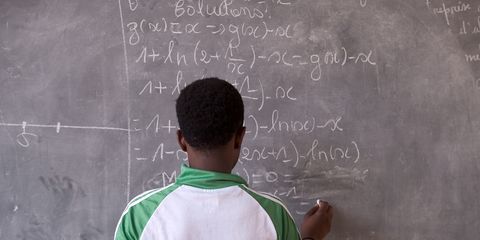Bandiba had to flee her village in Burkina Faso due to the conflict. Five years after her displacement, she is a well-known seamstress, with big ambitions for herself and her children.
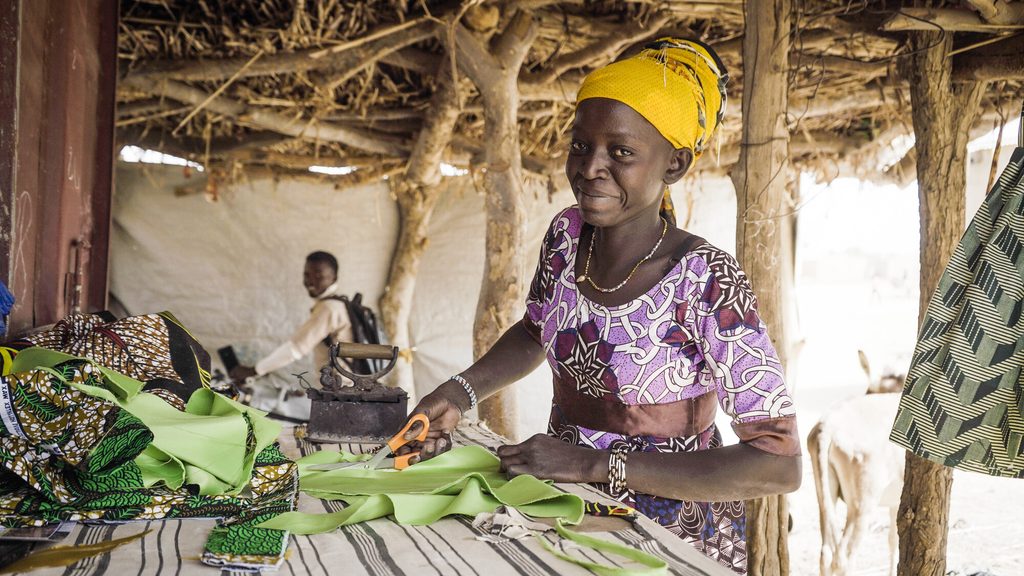
“It was because of the insecurity that we fled to Fada,” 24-year-old Bandiba explains in a powerful voice that highlights her resilience in the most difficult of times. When her sister-in-law’s husband was killed by armed men, the family made the decision to move to Fada N’Gourma, the regional capital which was 120km away. Faced with great uncertainty, her husband sold his cattle and they left their village, leaving all their belongings behind.
On her way to reconstruction
“When we arrived in Fada, we slept at the bus station for 3 days. Then we stayed with one of my husband’s uncles. Afterwards we were allocated a tent, where we lived for 2 years. It was really hard to get enough to eat. Through the distributions, we received some food, but it wasn’t enough,” recalls Bandiba, who describes herself as a survivor.
As the conflict worsened, Bandiba’s husband decided to use their savings to buy a plot of land and build a small house. This provided the family with a permanent home, but Bandiba still needed a way to earn an income. One day, she heard about a sewing course which was being offered at a nearby training centre.
“Before, meeting certain needs was difficult and I often had to ask my husband for money. Now I don’t have to ask him anymore.”
Bandiba
To pay for her enrolment, she began to work hard every day, collecting wood and gravel to sell. Eventually, she had saved enough money to attend the course for 3 months. With her new skills, Bandiba was able to start a small sewing enterprise in her home using an old treadle sewing machine. However, business was slow and her income modest.
In 2022, Bandiba was selected to take part in a programme run by Plan International. Following skills development training in areas such as financial literacy, good savings practices, marketing and future planning, Bandiba received a grant of 150 Euros to scale up her business.
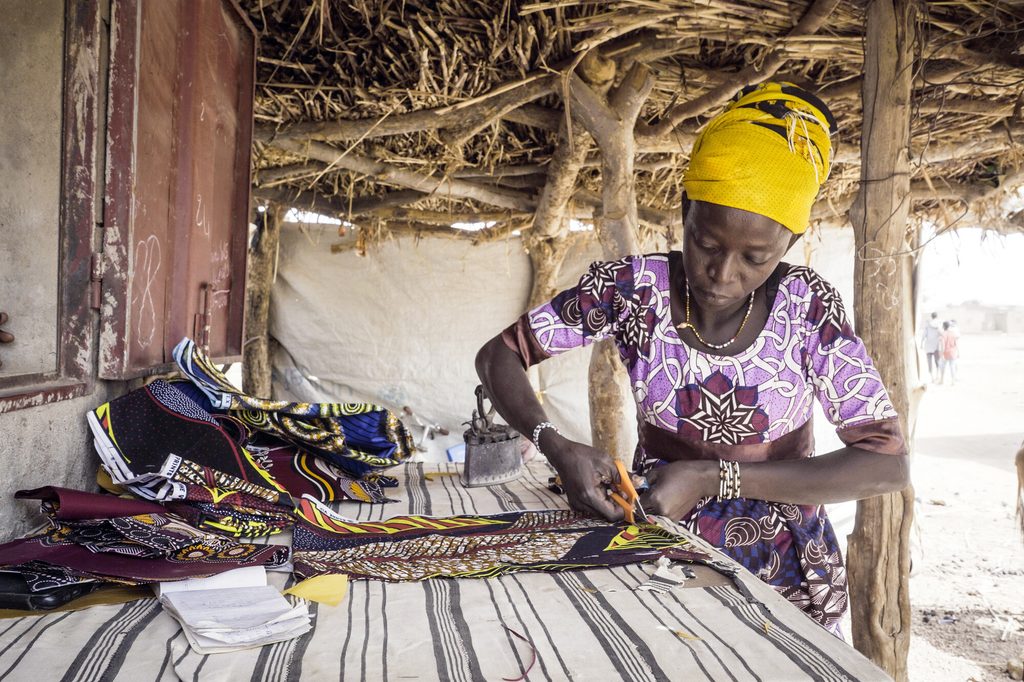
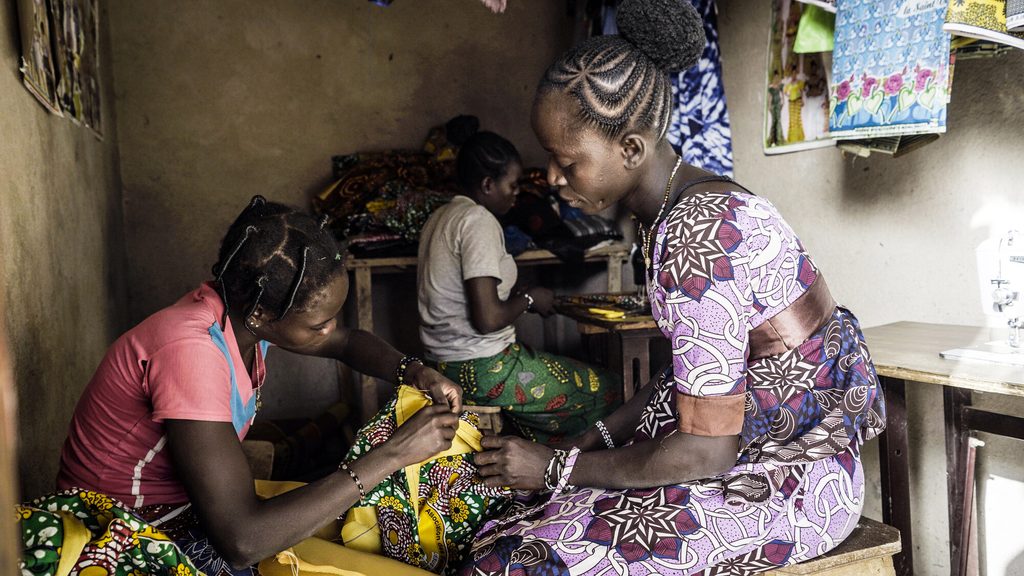
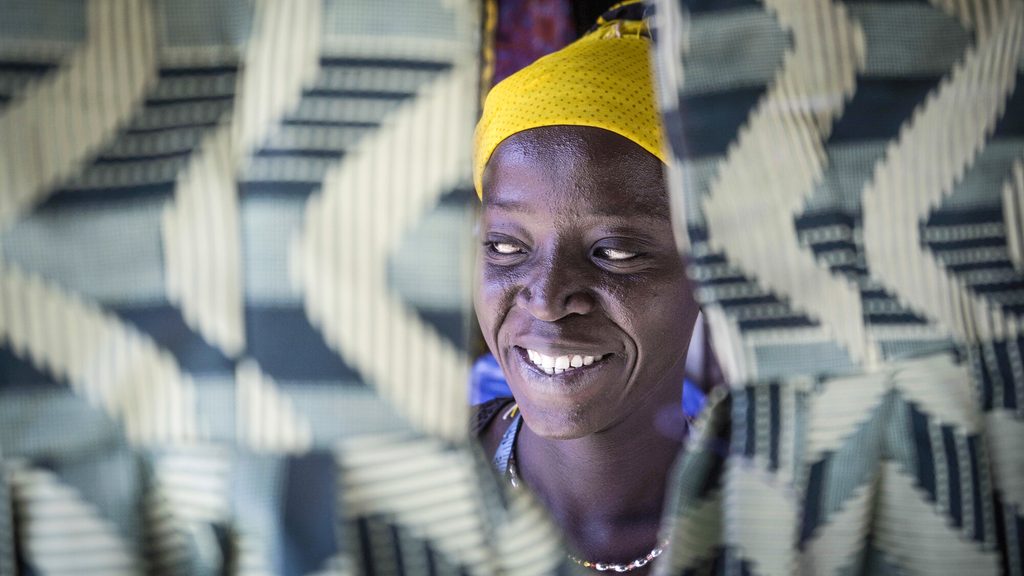
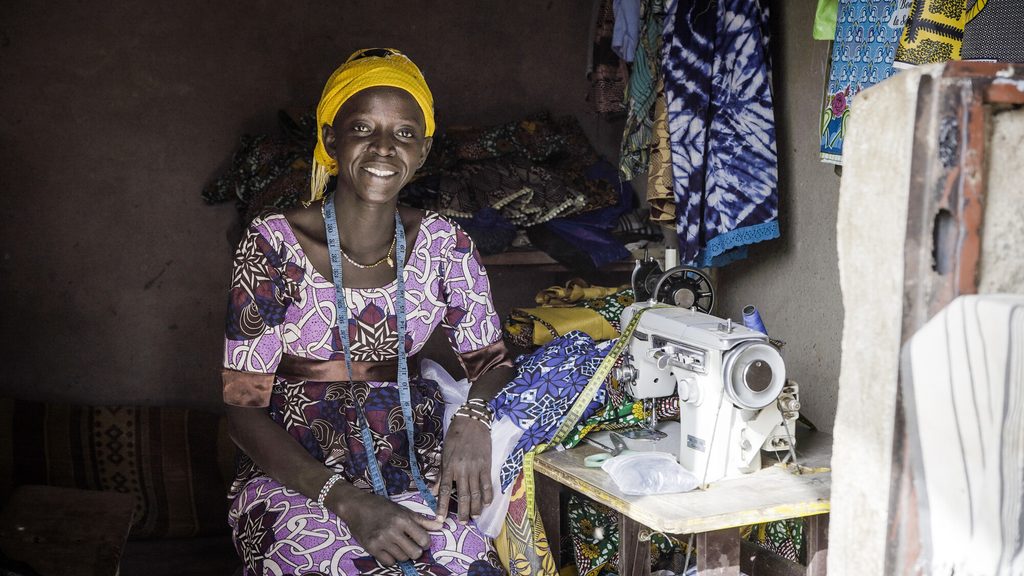
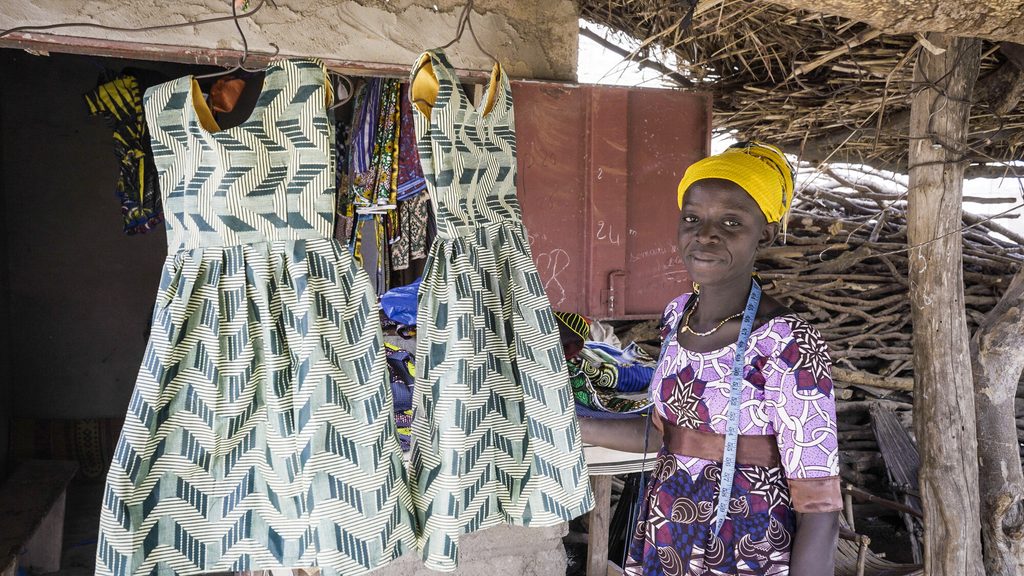
Bandiba was then able to set up a workshop in front of her house, buy better sewing equipment and train a girl as her apprentice. “I needed a cutting table and benches for my customers. I was also able to buy a lot of equipment and accessories, and even bought a modern electric sewing machine, which helps me a lot,” shares Bandiba.
From conflict survivor to successful entrepreneur
Word of mouth is paying off, and 2 years on, Bandiba has become well known in her community as an excellent seamstress. She has also been able to expand her team and now employs 6 apprentices.
“Given the quality of our service, my neighbours advertise for us. I’m the go-to person in sewing for women and men, that’s for sure. It proves my dedication to a job well done.”
“Thanks to Bandiba’s work, we manage to live with dignity. She often gives me money to put aside.”
Bandiba’s husband Miahanla
Bandiba is now financially independent and can make plans. “Before, meeting certain needs was difficult and I often had to ask my husband for money. Now I have money to pay for water when I go to the fountain, to buy food, soap, wood, clothes and shoes, and medicine for the children when they’re ill. I don’t have to ask him anymore.”
Bandiba’s husband, Miahanla, 34, is delighted to see his wife supporting their family. “With the crisis we’ve been suffering. I have a small store in front of our house, and I do a bit of trading. Thanks to Bandiba’s work, we manage to live with dignity. I’m happy for my wife because her business is going well. She often gives me money to put aside for our children’s future.”
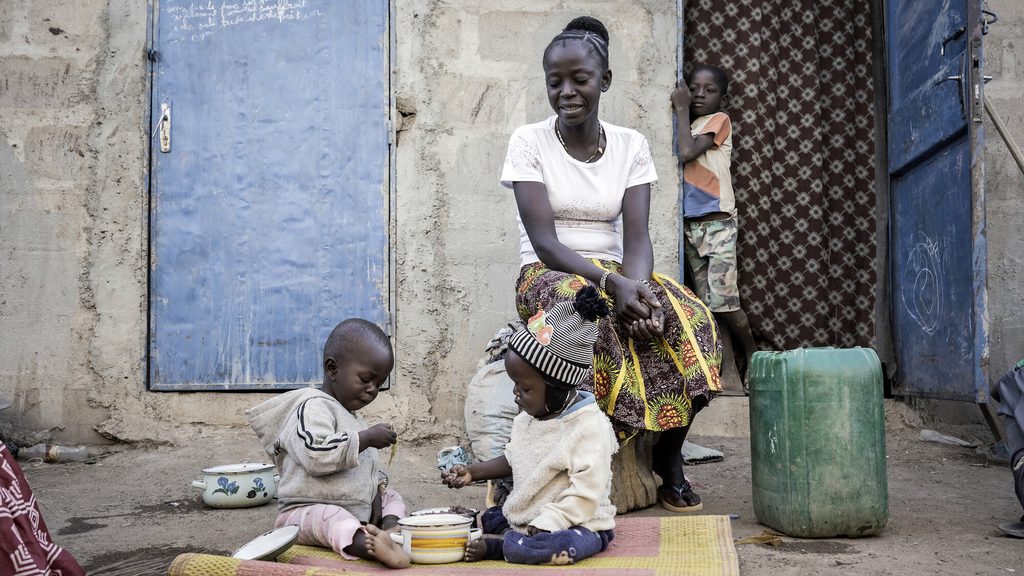
Bandiba hopes to continue growing her business. “My wish is to be able to train more people in the coming years,” she says, adding that she hopes to be able to build a larger workshop and buy more machines one day. However this will have to wait for now. “I don’t earn enough yet,” she concedes.
All Bandiba and Miahanla’s older children attend school, they also support children who were left orphaned by the conflict. “Getting the children ready for school in the morning makes me very happy because it means preparing them to succeed,” says Bandiba, who would like her children to become health workers or teachers. “It gives me hope. I’m no longer afraid of the future, I know that I will be happy.”
About the project
Plan International’s Emergency and Resilience Programme (PURE) is supported by the Danish Ministry of Foreign Affairs and ran from January 2021 to December 2023. More than 5,300 people, including around 3,700 women, received financial support to set up income-generation activities in 4 regions of Burkina Faso. In total, the project reached over 120,000 people, including around 75,600 internally displaced people, through food security, protection and education interventions.
In late March 2023, more than 124,000 internally displaced people were living in Fada N’Gourma according to official data. The growing population has put basic services, particularly food, water and health care, under increasing strain. In total, over 2 million people are now internally displaced in Burkina Faso (OCHA, December 2023), which is in the grip of an unprecedented security crisis.

